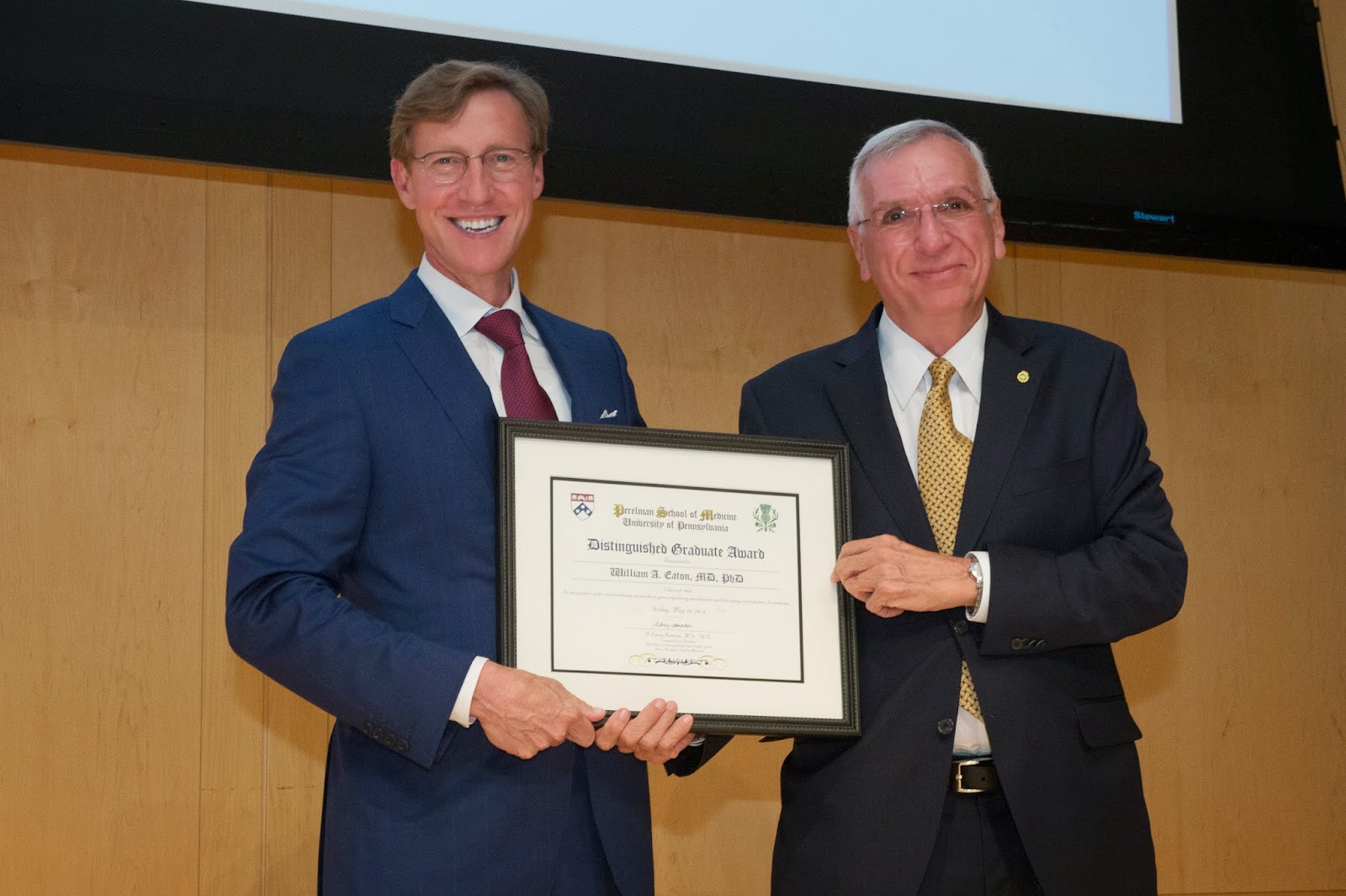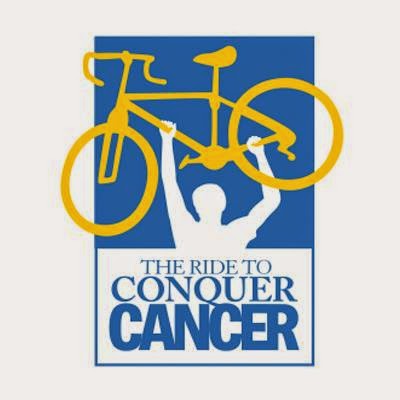Those who arrived early enough to enjoy Pancakes with Professors on Friday were also treated to a diverse and energetic telling of 50 years worth of medical tales courtesy of the Class of 1964 50th Reunion Panel.
Carl Bartecchi, M’64, author of A Doctor’s Vietnam Journal, was drafted as a flight surgeon soon after medical school. He spoke movingly of his annual volunteer efforts, begun in the late 1990s, of conducting critical care education programs in Hanoi and elsewhere in Vietnam.
Bob Fischer, M’64, FEL’70, who, as a preventive medicine officer, was also drafted to serve in Vietnam, is a professor of medicine and gastroenterologist at Temple University. He proudly offered a who’s who of gastroenterologists prominent locally and nationally who have strong ties to Penn Medicine.
Bill Eaton, C’59, M’64, GR’67, one of the first MD/PhD graduates at Penn and recognized at the Friday night Dean’s Dinner with a Distinguished Graduate Award for groundbreaking research during his lengthy NIH career, regaled the audience with tales of biophysical studies that have yielded major breakthroughs in understanding sickle cell disease.
John Forrest, Jr., M’64, who organized the panel discussion, is a professor of Medicine and director of the office of student research at Yale School of Medicine. He offered a slide show trip down memory lane, including reminiscences of influential faculty.
All of the distinguished panelists expressed pride in their association with Penn and the far-reaching impact of their medical educations here as well as amazement at the physical transformation of the campus.
Later that morning, Park Dietz, MD, MPH, PhD, FEL’78, recounted his unorthodox career path from medical student to expert witness in the nation’s highest-profile criminal cases. But even after decades of peering into criminal minds, from Jeffrey Dahmer to the Unabomber, Dietz hesitated to use the word "evil." Where others see evil, Dietz found “missed opportunities for prevention.” And he was equally skeptical of “sudden” acts of violence, seeing instead individuals who “throw out many signals of the trajectory they’re on” - and who can be stopped if we pay enough attention.
Acknowledging the formative impact of his mentor, Robert Sadoff, and Penn’s vibrant interdisciplinary atmosphere, Dietz traced the development of his innovative public-health approach to violence. His talk included some surprising details, from the orange squirt gun found in John Hinckley’s hotel room to a peculiar fact about stalkers (hint: beware a love letter more than a death threat). But Dietz’s most intriguing revelation was also the most fundamental. Our best chance for deterring violence, he concluded, is to intervene in a manner that communicates respect for the “essential humanity” of troubled individuals.
 |
| 50th Panel (l-r): Bob Fischer, M'64, FEL'70, Bill Eaton, C'59, M'64, GR'67, Martin Kanovsky, MD, John Forrest, Jr., M'64 and Carl Bartecchi, M'64 |
Bob Fischer, M’64, FEL’70, who, as a preventive medicine officer, was also drafted to serve in Vietnam, is a professor of medicine and gastroenterologist at Temple University. He proudly offered a who’s who of gastroenterologists prominent locally and nationally who have strong ties to Penn Medicine.
Bill Eaton, C’59, M’64, GR’67, one of the first MD/PhD graduates at Penn and recognized at the Friday night Dean’s Dinner with a Distinguished Graduate Award for groundbreaking research during his lengthy NIH career, regaled the audience with tales of biophysical studies that have yielded major breakthroughs in understanding sickle cell disease.
John Forrest, Jr., M’64, who organized the panel discussion, is a professor of Medicine and director of the office of student research at Yale School of Medicine. He offered a slide show trip down memory lane, including reminiscences of influential faculty.
All of the distinguished panelists expressed pride in their association with Penn and the far-reaching impact of their medical educations here as well as amazement at the physical transformation of the campus.
Later that morning, Park Dietz, MD, MPH, PhD, FEL’78, recounted his unorthodox career path from medical student to expert witness in the nation’s highest-profile criminal cases. But even after decades of peering into criminal minds, from Jeffrey Dahmer to the Unabomber, Dietz hesitated to use the word "evil." Where others see evil, Dietz found “missed opportunities for prevention.” And he was equally skeptical of “sudden” acts of violence, seeing instead individuals who “throw out many signals of the trajectory they’re on” - and who can be stopped if we pay enough attention.
Acknowledging the formative impact of his mentor, Robert Sadoff, and Penn’s vibrant interdisciplinary atmosphere, Dietz traced the development of his innovative public-health approach to violence. His talk included some surprising details, from the orange squirt gun found in John Hinckley’s hotel room to a peculiar fact about stalkers (hint: beware a love letter more than a death threat). But Dietz’s most intriguing revelation was also the most fundamental. Our best chance for deterring violence, he concluded, is to intervene in a manner that communicates respect for the “essential humanity” of troubled individuals.


























